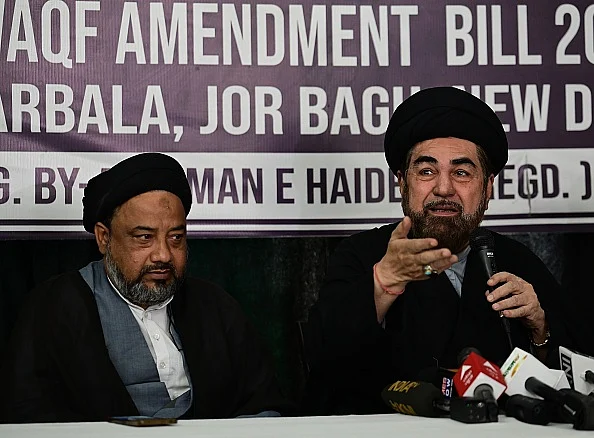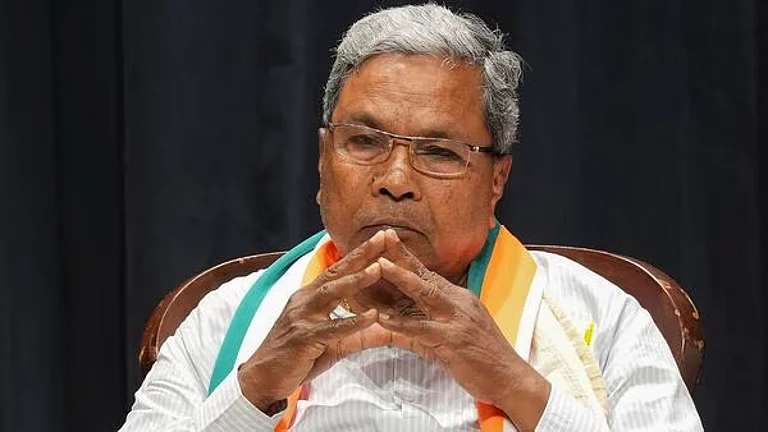The Waqf Board’s claim over residential and farmland in Kerala and Karnataka has been growing into an overtly communal conflict. The right-wing, particularly the Bharatiya Janata Party (BJP), has been using this opportunity to position the Communist Party of India-Marxist (CPI-M) and the Congress as being against Christian and Hindu interests.
The Waqf land dispute in Kerala has escalated into a political turmoil, with the BJP actively leveraging it to challenge both the ruling CPI(M)-led Left Democratic Front (LDF) and the opposition Congress-led United Democratic Front (UDF). The BJP has taken on the role of an advocate for the local residents of Munambam village, Vypeen Island, in Ernakulam, primarily Christian fishermen, who argue that they legally purchased the land before the 1954 Waqf Act came into effect.
A centuries-old land grant in Kerala’s coastal region has evolved into one of the state’s most contentious property dispute, interweaving religious trust laws, historical ownership rights and the lives of hundreds of families. Approximately 404 acres of land and 60 acres of backwaters in Munambam, located on Vypeen Island in Ernakulam, are under dispute, affecting 600 families in the area who fear losing their land rights, even as the government has assured that not a single family will be displaced.
Origin And Evolution Of The Dispute
The roots of this complex dispute trace back to the early 19th century when merchants from Gujarat’s Kutch region, known as Kutchi Memons, made their way to Kerala’s shores. Among these traders was Abdul Sattar Seth, who received a substantial land grant from the Travancore royal family. This grant, which was part of the kingdom’s broader agricultural development strategy, would later become the focal point of modern controversy.
A decisive moment in the property’s history came in 1950 when Sattar Seth’s descendants made a significant decision. His son-in-law, Siddique Seth, and father, Musalman Seth, donated the land to Farook College, Kozhikode, through a registered deed, designating it for educational purposes. The deed carried specific conditions: any income generated from the land would support the college’s development, and if the institution ceased to operate, the property would revert to Sattar Seth’s heirs. The Farook College, founded in 1948, is a prominent autonomous college in Kerala, known for its impressive academic performance. The land on Vypeen Island, which is currently under dispute, was part of the property donated to the college.
The twist in the story happened in 2019 when the Kerala Waqf Board officially claimed ownership of the property in Vypeen Island. This claim emerged from a 2008 investigation, followed by allegations of encroachment raised by a member of the Waqf Board. The Board’s assertion has created considerable uncertainty for current residents, many of whom purchased their land from Farook College during a decade-long period of sales from 1983 to 1993, transactions that generated approximately Rs 33 lakh, according to the sale records available with the government.
The situation grew more complex with each passing year. Today’s residents fall into multiple categories: those whose families lived on the land before 1950, others who purchased property from Farook College, and some who settled without formal ownership documentation. Their ability to establish clear property rights has been further complicated by a court stay order, obtained by the Waqf Protection Forum or the Waqf Protection Committee, which prevents them to pay property taxes. This inability to pay property taxes has challenged their ownership rights.
Politics Around The Dispute
The dispute has drawn various political actors into its orbit. The BJP has emerged as a vocal advocate for local residents, particularly those from Christian and fishing communities, pushing for amendments to the Waqf Act. Meanwhile, the ruling CPI(M)-led LDF government is walking the tightrope, expressing support to protect residents’ interests, while acknowledging the legal constraints that bind their actions. The Catholic Church has also joined the debate, adding its voice to calls for reform in the Waqf laws.
The potential paths to resolution have emerged through the fog of conflict. Some suggest that the Waqf Protection Forum could withdraw its appeal, while the Waqf Board relinquishes its ownership claim. Others see hope in dialogue between the local Muslim and Christian organisations, recognising that interfaith cooperation might offer the best chance for a lasting solution. The Kerala government has signalled its willingness to facilitate discussions, though its ability to intervene directly remains limited by legal frameworks.
Contrary to the government’s efforts to reach an amicable settlement, the Waqf Board appears to be in no mood to resolve the issue. In its latest move, Board has issued eviction notices to five families in Mananthavadi municipality in Wayanad District, asserting its claim over the property. The notices were issued in response to a complaint received on October 10, alleging that 4.7 of the 5.77 acres of Waqf land had been encroached upon by five families. These families have been asked to submit the relevant documents by November 16.
Additionally, a video circulating on the Catholic YouTube channel claims that the Waqf Board is now asserting rights over approximately 250 acres of land in Taliparamba, Kannur, as well as land owned by a Muslim family in Thalassery, Kannur. For those who want an amicable settlement, the worrying trend is that the property dispute is fuelling communal tension in many places, particularly in Munambam, where 600 families are affected. This locality has a predominantly Christian population. Along with the BJP, Christian fringe groups like CASA (Christian Association for Alliance and Social Action) have been actively trying to stir up the issue.
The 2013 Amendment
Providing significant relief to the occupants of the disputed Waqf land, the Kerala High Court ruled that possessions predating the 2013 amendment of the Waqf Act cannot be prosecuted. In other words, the amendment that added an additional clause—Section 52A—does not come with retrospective effect. Section 52A stipulates rigorous imprisonment of up to two years for the alienation, purchase, or possession of movable or immovable Waqf property without prior sanction from the Waqf Board.
On November 12, 2024, the High Court issued an order on a complaint filed by the Waqf Board against officers of a post office in Marikunnu, Kozhikode, alleging illegal possession of Waqf property. The court held that the post office has been operating on the property since 1999 and that the provision for prosecution under the 2013 Waqf Act amendment cannot be applied. This judgement could have far-reaching impacts on several disputed properties allegedly occupied by individuals and institutions that originally belonged to the Waqf Board.
No More Eviction Notices: Karnataka CM
The Congress government in Karnataka is facing a similar turmoil as the LDF in Kerala, with disputes over land ownership between the Waqf Board and individuals across several districts. The BJP has launched statewide protests against eviction notices issued to farmers. Chief Minister Siddaramaiah has instructed the officials of the revenue department to immediately withdraw these notices. The Karnataka Waqf Board has reportedly staked claims over extensive stretches of cultivated land, creating distress among hundreds of farmers.
The controversy around Waqf property in Karnataka gained widespread attention when BJP MP Tejasvi Surya alleged that the Waqf Board had issued notices to 20,000 farmers, seeking eviction from 1,500 acres of farmland in Vijayapura District, north Karnataka. However, Industries Minister M.B. Patil refuted these claims, stating that no large-scale eviction drive by the Waqf Board was underway. B. Z. Zameer Ahmed Khan, the state’s minister for housing, Waqf and minority affairs, confirmed that only 124 notices had been issued in relation to the land dispute. Regardless of the actual number of notices, the BJP has intensified its statewide protests against the Waqf Board’s claims over land currently in the possession of individuals, primarily farmers.
In both Kerala and Karnataka, the land disputes involving the Waqf Board have the potential to seriously affect communal harmony. In Munambam, for example, the conflict is portrayed as a “Muslim move against Christians”, given that most of those affected are Christians. Similarly, in Karnataka, the issue is increasingly becoming communal, with social media being used to spread divisive messages. Both state governments are grappling with complex legal issues surrounding this longstanding matter which has come as a political opportunity for the BJP.



























